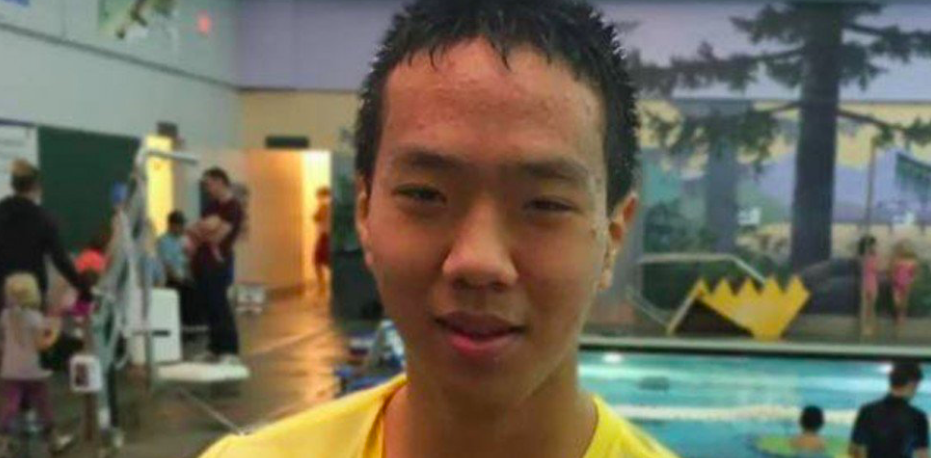Support strong Canadian climate journalism for 2025
“I only have a daughter.”
These were the last words of Lilly (Rong) Li, before she was strangled to death by two men in May, 2006. She was abducted, robbed and murdered after leaving her shift at River Rock Casino.
But Li wasn’t a River Rock employee, she was a loan shark.

More accurately, as evidence at the trial for her murder showed, she was a single mother working for a loan shark employer, a man who maintained his own full-time staff inside River Rock Casino. Li herself was probably just getting by, like so many others caught in low-level gang roles. Her killers were gamblers who thought she was carrying hundreds of thousands of dollars.
She only had $500 cash, but by the time they found that out, none of it mattered.
Her killers buried her in a shallow grave on Jericho Beach, where her remains lay all summer, until they were found in September.
Dirty Money, Peter German’s report on money laundering in our casinos may have caused a sensation on Wednesday, but Attorney General David Eby flinched when he should have landed the knockout blow.
There will be no looking back to assess blame, no naming names. What’s done is done. Let’s just patch things up and move this along, Eby may as well have said.
I’m sorry, Dave. I’m afraid I can’t do that.
This is too big. The public interest demands accountability from cabinet ministers, officials, and law enforcement agencies who so clearly abrogated their duty.
Money laundering is only part of this story, because when we talk about money laundering, we’re really talking about organized crime. Which sounds sort of, you know, organized. Almost clean, like a real business. Like a real estate deal that’s maybe just a little sketchy. It mainly bugs us because we figure it’s driving up the cost of housing in Vancouver.
So let’s pause for a moment and take a closer look at this “business.” A business that preys on the weak, the vulnerable, the most desperate in our community. The kind of people who will pay anything for hope. And do.
Bring up the bodies
First we have to bring up the bodies. So many bodies.
Betty Yan, mother and loan shark, gunned down in her car in 2009. Nikki Alemy, mother, executed at point-blank range in her husband's car, while her four-year-old son sat in the back seat. The Surrey Six victims, including innocent bystanders Christopher Mohan and Ed Schellenberg. Killed by gangsters over a drug debt. Innocent bystander 15-year-old Alfred Wong, shot dead in the back of his parents' car on Broadway during a gang shootout last January. Two high school boys dead on a Surrey country road, apparently victims of a targeted hit.

The list goes on and on and on.
The carnage in our streets and communities.
To say nothing of the countless addicts that ran out of luck, out of options, out of time.
Lucky us not to have anything to do with it, we may try to fool ourselves.
Yet organized crime will sell any drug for any kid's lunch money at any high school in this province, including the elite private ones. It sells poisoned fentanyl on the streets.
Who lures kids into drug trafficking to finance their own habits? Who sells—or more accurately rents—trafficked children and youth to the kind of clientele who have use for teenagers?
“Organized” criminals, that’s who.
Ever met any of those trafficked kids?
I have. I shepherded a 15-year-old high school kid for years through the labyrinth of the criminal justice system, while she testified at several trials about the gang that lured her into prostitution, "trained" her, then rented her out to groups of men.
"Business" men. Here. In our town.
And who profits from all this “organized” crime?
The same people who are washing their money in our casinos. Or loaning it out to gambling addicts there, which is another version of the same thing. Money laundering is the heartbeat of organized crime's circulatory system. Without entry to the legitimate marketplace, illicit cash is almost all dead weight.
Then there's us. We profit too, when we look the other way.
By the way, ever wonder what loan sharks use for collateral?
Pictures of your kids. Or your mom. With home address, school, and date of birth.
Now ask yourself what you would do if you couldn’t pay the 10 per cent-a-day you owe to someone like that. What wouldn’t you do to keep them away from your family?
I can tell you one thing you’re not going to do. You’re not going call the police. Not after you’ve sold drugs to keep the sharks from your door. Or turned tricks, or committed credit card fraud, or stolen from your employer or your grandmother, or emptied out your kids’ college fund.
No, you are not going to call the police. You might be more likely to take the easy way out. It’s a well-worn path.
So many bodies.
Which is why I’m not ready to make nice, Dave. There are a lot of well-intentioned people tempted by circumstance to make the right political move, or the least damaging one.

In the name of everything decent, can we please for once not do that?
The laundered money, the loan-sharked funds coursing through our casinos is blood money. That late-night laundromat might wash out the trace of crime, but nothing can wash away the blood.
And can we dispense with the absurd fiction that BC casinos “unwittingly” laundered the proceeds of crime? As if a loan shark could keep a full-time 24-hour staff present in a casino without management knowing. Management that directly profits from their clientele having access to on-site bankers.
Or that lots of legit businesspeople carry around hundreds of thousands of dollars in plastic bags.
While most of these practices have been reformed, the fantasy that this whole scandal happened by accident when a few checks and balances failed is flat-out insulting.
This wasn't the fallout of a turf war between competing enforcement arms. There were people in charge who made decisions that defied every principle of prudent governance. Like firing Joe Schalk, senior director of investigations for B.C.'s Gaming and Policy Enforcement Branch (GPEB). Schalk is the man credited by German with ringing the alarm back in 2012, but he was fired without cause in 2014, after relations between and BCLC had broken down.
Who in government made that call, and why?
There isn’t a law enforcement professional within a hundred miles who believes this was all just bad luck.
We have to talk about Rich

Speaking of law enforcement professionals, we need to talk about Rich Coleman.
A former RCMP officer who rose to become deputy premier and solicitor general in charge of policing, Coleman was also, for almost all the critical years involved, responsible for gambling and the British Columbia Lottery Corporation (BCLC).
When it came to issues around law enforcement and casinos in the Liberal government, Coleman was a one-stop shop. Yet he curiously vanished when the German report came out. Lights were out and doors locked at Coleman’s constituency office this week, and no one in media has seen hide nor hair of him.
Everyone wants to ask Coleman about at least two occasions when he responded very oddly to reports of corruption, money-laundering and organized crime in casinos.
The first was in January, 2009, when the Integrated Illegal Gambling Enforcement Team (IIGET) issued a report warning that the Hell’s Angels had successfully infiltrated the casino industry, and further, there was an extreme vulnerability to money-laundering in the facilities.
The unit’s leadership raised concerns that lack of resources hampered proper investigation into suspected money-laundering and loan-shark activity in casinos, and sought more staffing and support.
If you thought such a report might spur an experienced former RCMP officer and solicitor general into action, you’d be right. But instead of staffing up IIGET and providing resources to tackle corruption, internal memos uncovered by reporter Sean Holman in 2010 show that just weeks later in February, Coleman disbanded the unit altogether.
Asked for his reasons, Coleman said, “I had a team that wasn’t working and was costing taxpayers money. I decided to do it differently to get better results.”
Do what differently, exactly?
Nothing replaced IIGET. Any chance of coordinated or integrated expert police scrutiny of casinos in BC ended in 2009.
Then there was Coleman’s heated attack in 2011 on RCMP Insp. Barry Baxter, referenced in the German report. In response to a news report by CBC’s Eric Rankin about a gusher of suspicious cash transactions at Metro Vancouver casinos, Baxter stated the obvious. “We’re suspicious that it’s dirty money, and anybody—the common person would say this stinks. There’s no doubt about it.” (Bonus points if you spotted the link between this quote and German’s report title).
Coleman’s response was angry, personal, and it was false.
“Yeah, I know what he said, and I don’t agree with him and neither do all the superiors of his in the RCMP,” Coleman told the CBC.
Yet not only did Baxter's RCMP superiors agree with him, his statement was expressly pre-approved by their communications office. Moreover, Coleman was well aware of the money-laundering issue in casinos because, according to Rankin's reporting, the RCMP had informed him of it months earlier.
Why would Coleman personally attack a senior policing expert in the media, a man who was informing the public of the likelihood of money-laundering activity in casinos? Why would he try to mislead the public about the RCMP’s expert opinion, and even what he himself knew?
Did Coleman have any role in Joe Schalk's firing?
What were his real reasons to disband IIGET just as it turned its focus to corruption in the casino industry?
What kind of solicitor-general acts this way?
If there is an innocent explanation for all this, let us hear it now. The alternative is unthinkable, but only a fool couldn't think it.
It’s unsustainable for Coleman to continue sitting in the legislature without clearing the air. He must answer or resign.
It’s unsustainable for David Eby to think the German report will put this matter to rest, when it has only opened the floodgates. I’ve focused on Coleman in the interests of brevity, but he's only part of this story.
There's a more insidious danger when we brush off the glaring issues that German's report exposes. Unseen forces can exert powerful influence on public officials, diverting policy and investigations to benefit unknown interests. This is the threat of public corruption. Once a public official crosses the line, they are no longer working for the public, but are using their public office to work for someone else.
Obviously there is not enough information here to draw conclusions, but the warning signs are unmistakable. Ignoring them is not an option.
Only a Charbonneau style inquiry, with subpoena powers and teeth, will restore public confidence in the integrity of the system and our government leadership. Too many governments have foundered on the gambling shoal for us to accept more platitudes from anyone.
Mr. Eby, Premier Horgan, and Mr. Wilkinson, this is a moment of truth. You must, each of you, act.
Don't try to bury this.
The grave is too shallow, and it's already full.
Sandy Garossino is National Observer's award-winning national affairs columnist. Follow her stories by subscribing today. Use the promo code SANDY and save 20% on an annual subscription.






Comments
Thank you Sandy Garossino. May your words be acted upon for the sake of justice.
This column clarifies what is needed and what the majority of BC residents want: a full public enquiry with subpoena power. I would like to see the police investigation include Rich Coleman, Christy Clark, the Liberal Party and Christy's senior government finance officials because someone made the decision to enable the laundering and rake in that dirty blood-stained revenue. Coleman has been trash for a long time. It's just astounding how he parades around as a family values conservative. I first learned about Coleman's character when he forced fixed income seniors and people with disabilities in Steeves Manor to live with violent drug dealers, prostitutes and addicts who terrorized them. Amoral crud describes Rich Coleman.) I wonder how many people will read this column. It deserves to be on the front page of every newspaper in BC.
Another excellent Sandy Garossino report. What is happening in BC's casinos happens at them all - worldwide. And it keeps happening because governments insist the revenue is all easy money with no ties. As if! Casinos are storefront criminal enterprises, no matter who the ostensible owners are.
The one business that you will notice opening up just before a new casino opens is the pawn shop because everyone knows that the need for money for that one big payday becomes the paramount thought for gamblers - even for those who insist they just like a night out. The promise that the odds will somehow be with you apparently extinguishes intelligent thought, so, some people will pawn their watch and some will go to the conveniently located loan sharks and some will take up the offer of `employment' of one kind or another, on and on. Casinos then need to keep their suckers happy so turn a blind eye to the `ancillary services', such as prostitution, that are provided by other `businesses'.
In my previous life, I met a lot of women whose first foray into the criminal world was via the casino. The whole thing is a cesspool.
In theory, a casino could be run ethically, but it depends on who owns it. Any corporate owned casino is very likely to be trouble. But if the casino was crowd-owned by people who want to make a difference, then the money can remain in good hands. The same logic applies to the payday loan industry...where some people probably got their money to go gambling.
Sometimes, the only thing individuals can do is take over the business model themselves, and put the "big bads" out of business. That would clean up most (if not all) of the mess.
I really don't see how a casino could be run ethically. The business of a casino is to take away people's money and give nothing in return, by giving them the false impression that they might make money rather than losing it. If the impression isn't false, the casino goes out of business.
If people need adrenaline rushes and aren't up to extreme sports, let them play video games. At least that's an exchange of money for entertainment, not money for lies.
I want to agree with that. Unfortunately, any effort to completely erase gambling will only encourage more criminal behaviour. Taking over the industry ourselves may be the only chance we have.
"The alternative is unthinkable"--Nah, it's pretty thinkable. We've known for a long time the Liberals are corrupt as all hell.
rich colman is richer follow the money. Eby do your job you have the whole liberal.party
to diesect
rich colman is richer follow the money. Eby do your job you have the whole liberal.party
to diesect
thanks Sandy Garossino. it all points to Rich Colman wander what kind of policeman he was
evil. man that ran a liberal government . Dave Eby start draining the Swamp you have the people of BC .backing you
Thanks for this article. It's heartening to see this focus on what needs to happen if we Canadians are not to slide further down the same greased slope of corruption that has been getting progressively steeper as power has been more and more distorted by its willful disconnection from truth and ethical responsivity. The seduction of money, power and profit has coalesced into self-protective bubbles that surround those actively involved in the complex agendas of corruption - along with the manipulable enablers, who gather around them. The author is correct that this cannot be minimized. That is exactly how the US ended up with Mr. T. as president.
This money laundering in our bc casinos must be thoroughly investigated. It is a violent world in organized crime. They prey on vulnerable people. Get them where it hurts the most, the money$$$!
Thank you Ms. Garossino and National Observer for having the courage and integrity to investigate this den of criminals.
Nobody in the "straight world" comes out clean when we start to really look at the "prosperity" that hovers like a really bad stink around organized crime. Too many "straight" people turn blind eyes, "don't want to get involved", refuse to acknowledge the connections between their "recreational" illegal drug use and the crimes, the misery, the international black economy that promotes so much evil. When even Nation states, like China, various governments in South East Asia, and most notoriously, in Italy actively collude, with their criminal networks - for fun and profit, it makes on wonder, how much of one's own Nation, society, and community is in thrall to the gangsters.